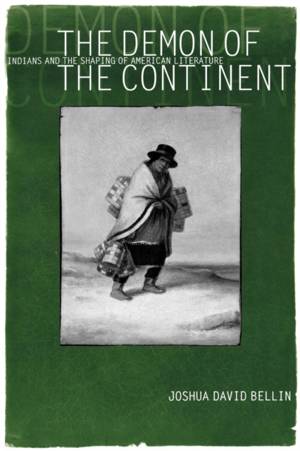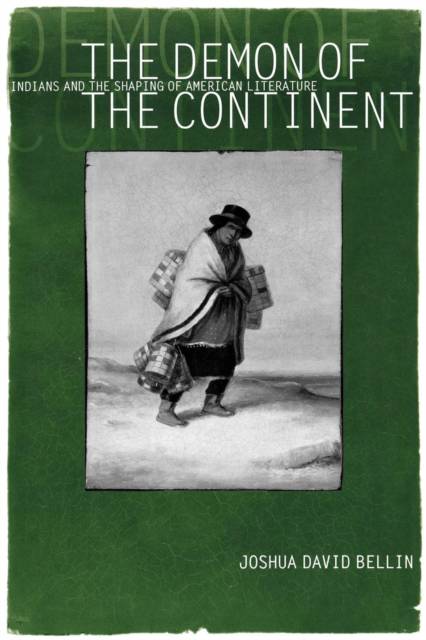
- Retrait gratuit dans votre magasin Club
- 7.000.000 titres dans notre catalogue
- Payer en toute sécurité
- Toujours un magasin près de chez vous
- Retrait gratuit dans votre magasin Club
- 7.000.0000 titres dans notre catalogue
- Payer en toute sécurité
- Toujours un magasin près de chez vous
The Demon of the Continent
Indians and the Shaping of American Literature
Joshua David Bellin
Livre broché | Anglais
60,95 €
+ 121 points
Description
The Demon of the Continent Indians and the Shaping of American Literature Joshua David Bellin "This work will join such studies as Toni Morrison's Playing in the Dark, Eric Sundquist's To Wake the Nations, and Lucy Maddox's Removals. It is a thoughtful, engaging study."--Priscilla Wald, Duke University "Bellin not only proposes a major and fundamentally new reading of American literature itself, he also writes beautifully."--Barry F. O'Connell, Amherst College In recent years, the study and teaching of Native American oral and written art have flourished. During the same period, there has been a growing recognition among historians, anthropologists, and ethnohistorians that Indians must be seen not as the voiceless, nameless, faceless Other but as people who had a powerful impact on the historical development of the United States. Literary critics, however, have continued to overlook Indians as determinants of American--rather than specifically Native American--literature. The notion that the presence of Indian peoples shaped American literature as a whole remains unexplored. In The Demon of the Continent, Joshua David Bellin probes the complex interrelationships among Native American and Euro-American cultures and literatures from the mid-seventeenth to the mid-nineteenth centuries. He asserts that cultural contact is at the heart of American literature. For Bellin, previous studies of Indians in American literature have focused largely on the images Euro-American writers constructed of indigenous peoples, and have thereby only perpetuated those images. Unlike authors of those earlier studies, Bellin refuses to reduce Indians to static antagonists or fodder for a Euro-American imagination. Drawing on works such as Henry David Thoreau's Walden, William Apess' A Son of the Forest, and little known works such as colonial Indian conversion narratives, he explores the ways in which these texts reflect and shape the intercultural world from which they arose. In doing so, Bellin reaches surprising conclusions: that Walden addresses economic clashes and partnerships between Indians and whites; that William Bartram's Travels encodes competing and interpenetrating systems of Indian and white landholding; that Catherine Sedgwick's Hope Leslie enacts the antebellum drama of Indian conversion; that James Fenimore Cooper and Henry Wadsworth Longfellow struggled with Indian authors such as George Copway and David Cusick for physical, ideological, and literary control of the nation. The Demon of the Continent proves Indians to be actors in the dynamic processes in which America and its literature are inescapably embedded. Shifting the focus from textual images to the sites of material, ideological, linguistic, and aesthetic interaction between peoples, Bellin reenvisions American literature as the product of contact, conflict, accommodation, and interchange. Joshua David Bellin is a member of the faculty of La Roche College. 2000 280 pages 6 x 9 ISBN 978-0-8122-3570-8 Cloth $59.95s £39.00 ISBN 978-0-8122-1748-3 Paper $27.50s £18.00 World Rights Literature, Native American Studies, Cultural Studies Short copy: American literature has been deeply shaped by the presence of American Indians.
Spécifications
Parties prenantes
- Auteur(s) :
- Editeur:
Contenu
- Nombre de pages :
- 280
- Langue:
- Anglais
Caractéristiques
- EAN:
- 9780812217483
- Date de parution :
- 18-10-00
- Format:
- Livre broché
- Format numérique:
- Trade paperback (VS)
- Dimensions :
- 152 mm x 229 mm
- Poids :
- 417 g

Les avis
Nous publions uniquement les avis qui respectent les conditions requises. Consultez nos conditions pour les avis.






